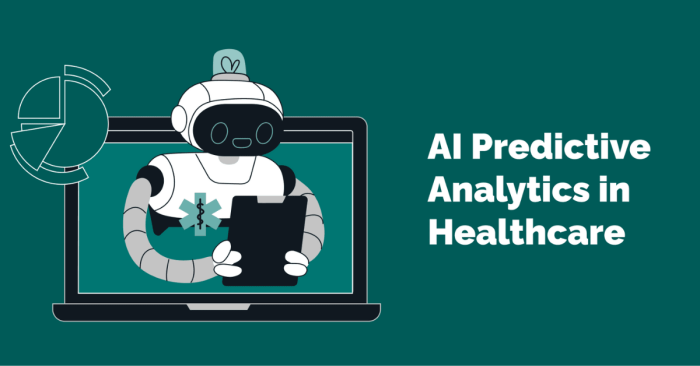Overview
AI tools for health data analytics are transforming the healthcare industry by enabling advanced insights from large volumes of patient and clinical data. These tools use artificial intelligence, machine learning, and predictive analytics to analyze electronic health records, lab results, imaging data, and real-time patient monitoring information.
AI algorithms identify patterns, predict disease risks, and support clinical decision-making. By automating data analysis and uncovering actionable insights, these tools enhance patient care, optimize operational efficiency, and reduce healthcare costs. Widely adopted by hospitals, research institutions, and health organizations, AI-powered health data analytics tools improve early diagnosis, personalized treatment plans, and population health management while ensuring data-driven and evidence-based healthcare outcomes.
1. IBM Watson Health – AI Health Analytics
IBM Watson Health leverages AI to analyze vast healthcare datasets, including electronic health records and imaging results. AI algorithms detect patterns, predict patient outcomes, and generate actionable insights for clinical decision-making. The platform supports hospitals, research centers, and insurance providers in improving care quality and operational efficiency.
2. Health Catalyst – AI-Powered Analytics Platform
Health Catalyst uses AI to aggregate and analyze patient data across multiple sources. AI algorithms identify clinical patterns, predict risks, and recommend interventions. The platform helps healthcare organizations improve patient outcomes, streamline workflows, and enhance population health management through AI-driven analytics.
3. Google Health – AI Medical Insights
Google Health leverages AI to analyze medical imaging, patient records, and lab results. AI models detect anomalies, predict disease progression, and provide insights for personalized treatment. The platform supports clinicians in making data-driven decisions and enhances diagnostic accuracy through AI-powered analytics.
4. Ayasdi – AI Healthcare Analytics
Ayasdi combines AI and machine learning to analyze complex healthcare datasets. The platform identifies patient subgroups, predicts outcomes, and detects patterns in clinical data. AI-driven insights help healthcare providers improve care quality, optimize treatment plans, and reduce readmission rates.
5. Cerner – AI Health Data Platform
Cerner uses AI to analyze electronic health records and clinical data for actionable insights. AI algorithms predict patient risks, optimize treatment pathways, and enhance operational efficiency. The platform supports hospitals and clinics in improving patient care and healthcare outcomes through intelligent data analytics.
6. SAS Health Analytics – AI Decision Support
SAS Health Analytics leverages AI to process large healthcare datasets, identify trends, and provide predictive insights. AI algorithms assist in risk stratification, resource planning, and population health management. The platform helps organizations make data-driven decisions, improve clinical outcomes, and optimize operational efficiency.
7. Optum – AI-Driven Health Insights
Optum combines AI with healthcare data analytics to predict patient risks, identify trends, and optimize care delivery. AI algorithms analyze claims data, clinical records, and patient-reported outcomes. The platform supports preventive care, population health management, and evidence-based clinical decision-making.
8. Flatiron Health – Oncology Data Analytics
Flatiron Health uses AI to analyze oncology patient data and electronic health records. AI algorithms identify treatment patterns, predict outcomes, and support research in cancer care. The platform enables data-driven decision-making for clinicians and enhances personalized treatment strategies for patients.
9. Qventus – AI Operational Analytics
Qventus integrates AI with health data to optimize hospital operations and patient flow. AI algorithms predict bottlenecks, resource requirements, and potential risks. The platform helps hospitals improve efficiency, reduce wait times, and enhance patient care through actionable AI insights.
10. HealthVerity – AI Data Integration and Analytics
HealthVerity leverages AI to integrate and analyze diverse healthcare data sources, including claims, lab results, and electronic health records. AI algorithms detect patterns, predict outcomes, and support research and clinical decision-making. The platform ensures secure, compliant, and actionable insights for healthcare organizations.
(FAQs)
Q1: How do AI tools improve health data analytics?
AI tools analyze large, complex healthcare datasets, identify patterns, predict outcomes, and generate actionable insights, improving patient care and operational efficiency.
Q2: Are AI health analytics tools suitable for hospitals and clinics?
Yes, platforms like IBM Watson Health, Health Catalyst, and Cerner are designed to support hospitals, clinics, and research institutions in evidence-based decision-making.
Q3: Can AI analytics help in preventive healthcare?
Absolutely, AI algorithms can predict disease risks, identify high-risk patients, and recommend preventive interventions, enabling proactive and personalized care.
Learn More About AI Course https://buhave.com/courses/learn/ai/






